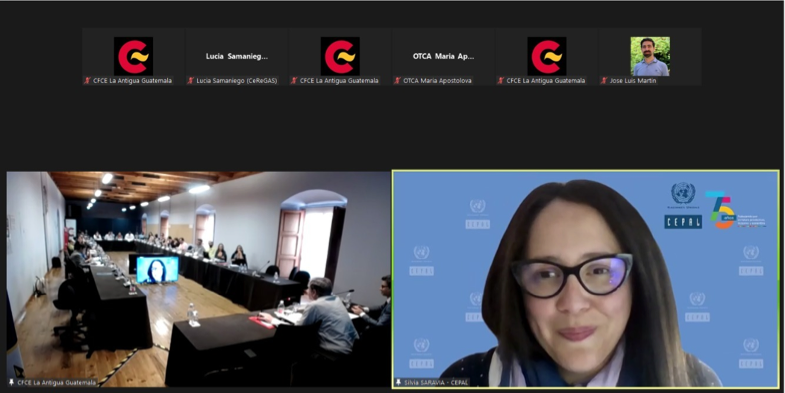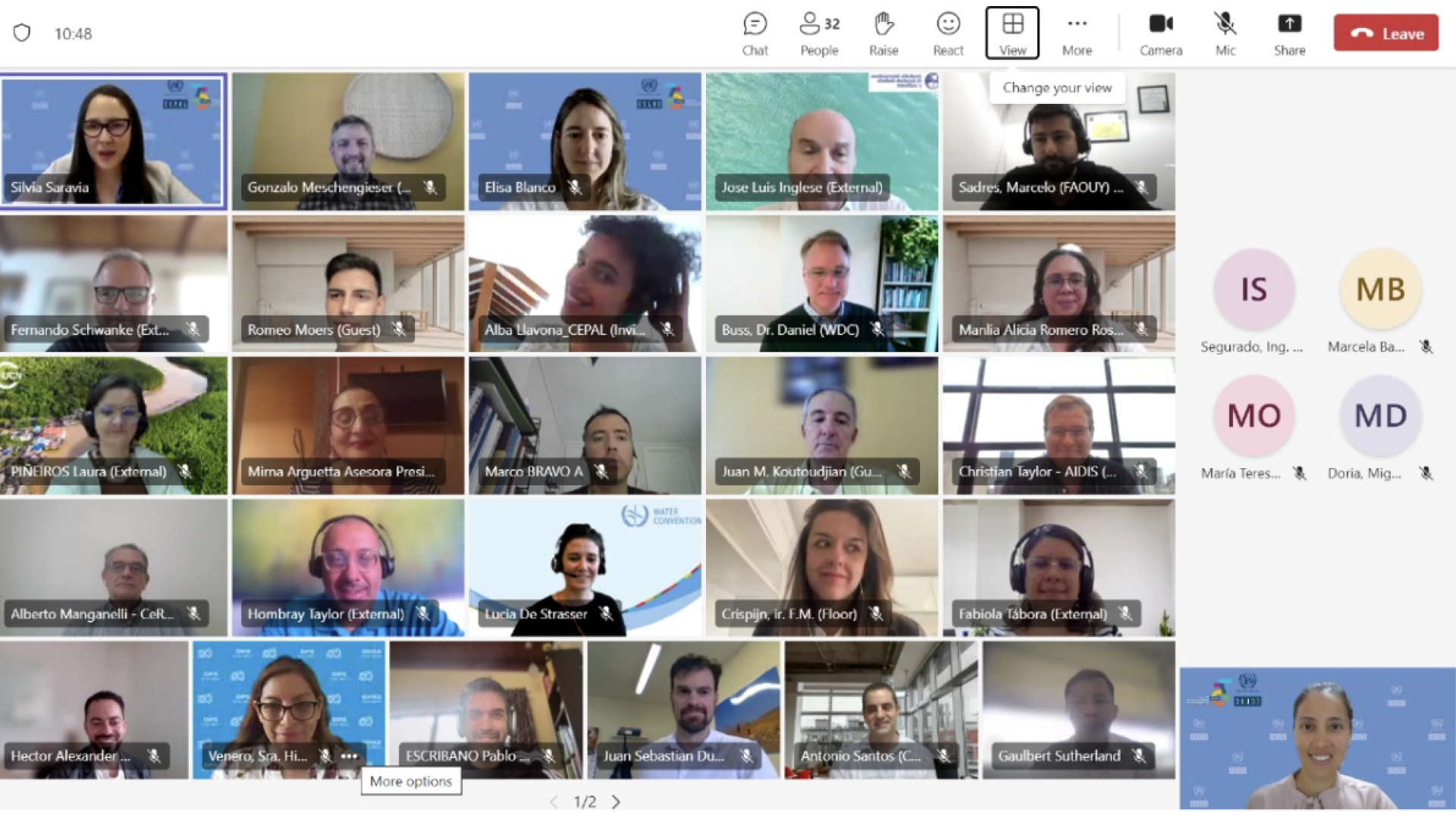Briefing note
From May 15th to 19th, experts and professionals from various disciplines gathered to address challenges and key aspects related to water management in a national and international context. The course featured a wide variety of sessions and presentations that tackled crucial topics, such as the principles of International Water Law applicable to transboundary basins, indicators for the Sustainable Development Goals (SDGs), institutional development to strengthen resilience and transboundary cooperation, and the general regulatory framework and international agreements related to water.
On May 15th, Dr. Silvia Saravia Matus, Economic Affairs Officer of the Water and Energy Unit within the Natural Resources Division of ECLAC, discussed the challenges of water management in the region, emphasizing the importance of an integrated and multisectoral vision. She also emphasized the need to promote the participation of all stakeholders for more efficient water management. During her presentation, she shared information about the recently launched capacity-building project ROSA: Network and Observatory for Water Sustainability.
Throughout the event, regional case studies were presented, including administrative coordination in the Plata Basin and the management of water resources in the binational Lake Titicaca Basin. Cooperation aspects in water management in the Andean region and the relationship between Mexico and the United States of America regarding shared waters were also explored. The presentation of national situations by the course participants themselves allowed for knowledge exchange and the sharing of best practices among the attending professionals



